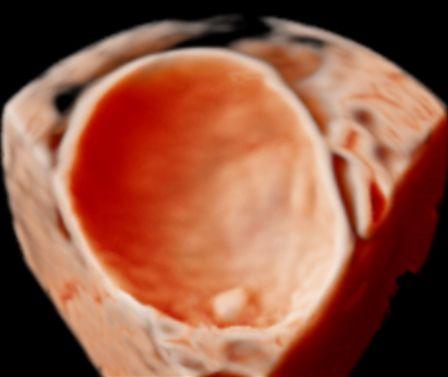This was demonstrated by a large scale, international study conducted by the ‘International Ovarian Tumour Analysis’ (IOTA) group, which was published in The Lancet Oncology today. The study monitored 1,919 patients in 19 hospitals, including UZ Leuven, across nine countries. The patients, 823 of whom were postmenopausal, suffered from benign ovarian tumours and were monitored for up to two years after the diagnosis.
During that time 20.2% of patients healed spontaneously. In 16.1% of cases the tumour was removed during an operation. There were few complications with benign tumours during the study. The severity of complications, e.g. tumours becoming malignant, borderline tumours, twisting or rupture of cysts, remained very low: between 0.2 and 0.4%.
Dr. Wouter Froyman, lead author of the study and gynaecologist at UZ Leuven, explains: "This study shows that it is safe to adopt a wait and see approach with respect to ovarian tumours that prove to be benign during an ultrasound scan. After all, an operation is always associated with a potential risk of serious complications, i.e. postoperative thrombosis, pulmonary embolism or wound problems."
Complications avoided in 26 to 109 women
UZ Leuven gynaecologist prof. dr. Dirk Timmerman, founder and coordinator of the IOTA group: "Previous reports following screening studies have shown that complications can occur in 3.5 to 15% of cases involving women aged between 50 and 74. If we had resorted to operations in all menopausal women participating in our study, 29 to 123 of them would have suffered serious complications. In our study only 96 postmenopausal women were operated on and complications were consequently avoided in 26 to 109 women. The level of complications following an operation in premenopausal women is not clear, but is probably lower."
The results of this study may lead to a reversal in the approach to benign ovarian tumours, i.e. a lesser inclination to resort to surgery.Prof. dr. Dirk Timmermann - gynaecologist
Reversal in approach
"The surgical removal of a benign tumour can also lead to problems in the long term," dr. Wouter Froyman points out. "Surgery may lead to fertility problems as well as chronic pelvic pain and intestinal obstructions."
"The results of this study may lead to a reversal in the approach to benign ovarian tumours, i.e. a lesser inclination to resort to surgery. Not only will the patient benefit from this because we can avoid serious complications, but we can also keep down the cost for healthcare providers. However, an initial and reliable ultrasound diagnosis is a must," prof. dr. Timmerman concludes.

